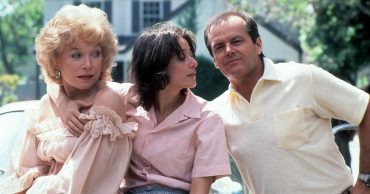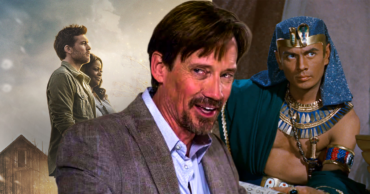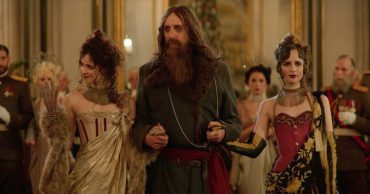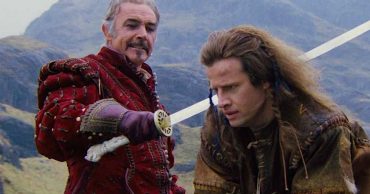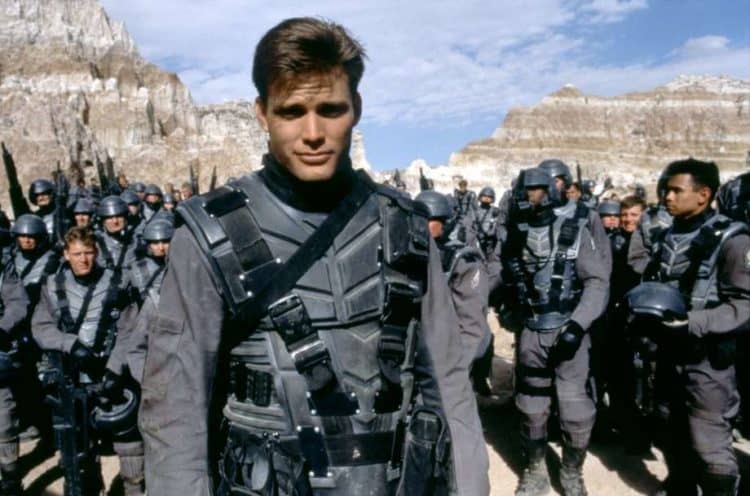
When you hear that 1997 was a quarter of a century ago, moments like that can be hard to grasp since so much of 1997’s popular culture still feels so fresh. The late-90s are rife with nostalgia these days, and its not hard to see why since about the only consequential event at the time was a presidential sex scandal. This was the year that Titanic premiered in theaters, and regardless of personal preference, nobody can deny it was a watershed moment in American popular culture. That historical drama topped the North American box office for 12 years, until Cameron bested his own record with 2009’s Avatar. In many ways, some film enthusiasts and historians look back at 1997 cinema as a bit of a slow crawl to December when Cameron’s three-hour magnum opus sold its first ticket; but that would tantamount to saying that 1997 was a weak year for cinema, and nothing could be further from the truth. This was the year that peak Disney Renaissance truly started to decline–I mean, I am sure Hercules has its fans, but it marked a sharp drop in quality since the long streak of gems beginning with The Little Mermaid (1989). Men in Black, Air Force One, The Lost World: Jurassic Park, and Liar, Liar dominated the box office, but in their midst was an entire treasure trove of outstanding films in the indie market. Let’s take a look back at some of the most underrated films from 1997.
Ulee’s Gold
The late Peter Fonda, the son of Henry Fonda and brother to Jane Fonda, was an actor that always strived to live down his Easy Rider image from 1960s counterculture, and his work in the little-seen Ulee’s Gold, is a shining example of his acting abilities. Playing a 60-something, quiet and retiring Florida panhandle beekeeper named Ulee Jackson, Fonda’s performance is more compelling in it’s quiet moments than any grand, scene-stealing performance from a year filled with them. This is the type of film that tells a fantastic story through acting alone, and Home Improvement’s Patricia Richardson and a young Jessica Biel round out the stellar cast of characters.
Crash
David Cronenberg’s Crash represents a type of bold and audacious cinema that simply doesn’t exist anymore. Based on J.G. Ballard’s cerebral, fetishistic 1973 novel, which explores a group of people that find sexual fulfillment in witnessing and simulating car crashes, Cronenberg is one of the only directors that could have pulled this off–and he certainly did. The film is a perfect allegory for how enraptured society has become with technology since it’s release, and the fact that logic and literal meanings are not important to the story allow the bizarre context of the film to take center stage. The film is cold and mechanical, and although its features a lot of gratuitous sex, it is an oddly unsexy film and rather queasy in a few key scenes. But despite the controversy, this is an important film, and one of the best of the late-1990s.
Starship Troopers
Starship Troopers is now a cult classic, so its inclusion here is a tad misleading, but after its release and the succeeding years, many people begin to label it one of 1997’s most underrated. It’s not hard to see the eerie parallels to the coming War on Terror in the early 2000s throughout the film’s plot, and this has led to the film’s reappraisal in scholarly circles as well. At the time, critical appraisals of the film dismissed it due to tis corny dialogue, tongue-in-cheek humor, and cartoonish violence that depicted a race of aliens bent on Earth domination, but most of these reviews missed the point, and failed to see that all of this was a rather scathing critique on the mythical absurdity that comes with war. Despite all of these observations, the movie is rapturously fun and features superb CGI effects for 1997. While this film is not as underrated as it once was, it is still an important film of a packed year, and any genre film that incites scholarly debate certainly deserves a first or second look.
The Ice Storm
By 2022, Taiwanese filmmaker Ang Lee has built a celebrated filmography, but there was a little-seen film from early in his career that also happens to be one of his best, The Ice Storm. Set during the Thanksgiving holiday weekend of 1973, the film explores the interpersonal relationships and dynamics of two New England, upscale families mired in dysfunction. Kevin Kline, Sigourney Weaver, Joan Allen, and Jamey Sheridan are luminous as the clueless and unhappy parents, while Tobey Maguire, Christina Ricci, Elijah Wood, and Adam Hann-Byrd are unforgettable as the kids and adolescents trying to navigate the obvious dysfunction of their parents marriages with their own burgeoning emotions and world views.
Lost Highway
When it comes to David Lynch’s filmography, there are a few films that always manage to to score lukewarm receptions, and Lost Highway is certainly one of those films. Like most Lynch films, there are some viewers who are determined to try and “solve” certain paradoxes in the narrative; the point is not to add some sort of definitive meaning, but to extract the meanings and emotions that most describe your own personal viewing experience. Like many of his post-Wild at Heart offerings, Lost Highway is a film that asks the viewer to react to the puzzles on screen personally while admiring the form and structure–and this film certainly excels at that.
Jackie Brown
Jackie Brown is an interesting film in Quentin Tarantino’s filmography. In many ways, this marks his last film before embarking on his upending technique of genre films, and the result is a powerful and wholly Tarantino caper film. Pam Grier and Robert Forester give career-best performances, and the typically stellar soundtrack and outstanding dialogue are on display as well, but the film is never ranked highly on Tarantino retrospectives. This film is all character study for the most part, and it’s exquisite to behold how well it all ties together.
 Follow Us
Follow Us
